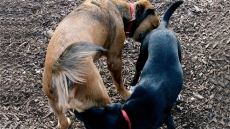It may sound surprising but children as young as two years old intuitively use mathematical concepts such as probability to help make sense of the world around them.
Researchers at the University of Washington have found that toddlers could differentiate between two ways a game is played and would opt for the one which is more likely to be successful.
“In our study, we wanted to see if young children could detect the difference between two imperfect ways of winning a game, and then use the better strategy to their own advantage,” said Anna Waismeyer, a researcher at the University of Washington's institute for learning and brain sciences.
For the study, researchers showed toddlers how the game was played.
A couple of wooden blocks were placed on a small box and a marble-dispensing machine was activated nearby.
One block activated the machine two-thirds of the time, and a differently coloured and shaped block triggered the machine only one-third of the time.
When it was their turn to play the game, most of the children (22 out of the 32) picked the more successful block, demonstrating that they were able to use the difference in probability to their advantage.
The findings help explain how young children learn so quickly, even in an uncertain and imperfect world.
"Remarkably, they learn about causality even if the people they are watching make mistakes and are right some but not all of the time," Waismeyer added.
This intuitive grasp of statistics shows that toddlers don't need to have to go through trial and error to learn - they can just watch what other people do, researchers concluded.
The study was published in Developmental Science.





